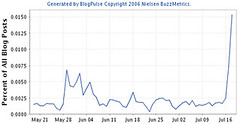Some public relations professionals and communicators scratched their heads because I didn't call for the resignation of John Mackey, CEO of Whole Foods Market, Inc. despite the obvious: what he did was wrong. Perhaps part of the answer can be found in the PRWeek/Manning Selvage & Lee (MS&L) Marketing Management Survey.
The survey polled 279 U.S. chief marketing officers, directors of marketing and marketing managers that are focused on consumer-generated media, integrated marketing, and industry ethics. Although some of the questions were somewhat phrased oddly (they are paraphrased here), some of the results might surprise you.
• Wal-Mart’s non-disclosure of its authorship of a blog was a breach in marketing ethics. 55 percent agreed.
• Julie Roehm’s acceptance of gifts and dinners from future advertising agencies was unethical. 46 percent agreed.
• Turner Broadcasting placing magnetic lights in Boston that resembled bombs was a breach. 41 percent agreed.
• Microsoft acted unethically in providing Windows Vista on laptops to technology bloggers. 32 percent agreed.
Clearly, there seems to be some confusion over ethics. Originally, I was going to write something about this, but then decided it might be fun to run a poll to see what some readers think first. Which of the following do you think constitutes the greatest breach of ethics? You can vote for only one (and some might not be ethical breaches); we'll share our take on it next week (after the poll closes).
Incidentally, the MS&L survey also revealed that 17 percent of senior marketers say their organizations have bought advertising in return for a news story; 7 percent said their organizations have an implicit/non-verbal agreement with a reporter or editor to see favorable coverage; and 5 percent of marketers said their companies had paid or provided a gift of value to an editor or producer in exchange for a news story about their company or its products.
So much for the notion that all journalists are somehow pre-equipped to make the right ethical decisions. As I have said before, ethics begins with the person and not the profession. Bloggers have an equal opportunity to be ethical and to suggest they cannot, as some people do, only indicates their own propensity to have an ethical lapse.

The survey polled 279 U.S. chief marketing officers, directors of marketing and marketing managers that are focused on consumer-generated media, integrated marketing, and industry ethics. Although some of the questions were somewhat phrased oddly (they are paraphrased here), some of the results might surprise you.
• Wal-Mart’s non-disclosure of its authorship of a blog was a breach in marketing ethics. 55 percent agreed.
• Julie Roehm’s acceptance of gifts and dinners from future advertising agencies was unethical. 46 percent agreed.
• Turner Broadcasting placing magnetic lights in Boston that resembled bombs was a breach. 41 percent agreed.
• Microsoft acted unethically in providing Windows Vista on laptops to technology bloggers. 32 percent agreed.
Clearly, there seems to be some confusion over ethics. Originally, I was going to write something about this, but then decided it might be fun to run a poll to see what some readers think first. Which of the following do you think constitutes the greatest breach of ethics? You can vote for only one (and some might not be ethical breaches); we'll share our take on it next week (after the poll closes).
Incidentally, the MS&L survey also revealed that 17 percent of senior marketers say their organizations have bought advertising in return for a news story; 7 percent said their organizations have an implicit/non-verbal agreement with a reporter or editor to see favorable coverage; and 5 percent of marketers said their companies had paid or provided a gift of value to an editor or producer in exchange for a news story about their company or its products.
So much for the notion that all journalists are somehow pre-equipped to make the right ethical decisions. As I have said before, ethics begins with the person and not the profession. Bloggers have an equal opportunity to be ethical and to suggest they cannot, as some people do, only indicates their own propensity to have an ethical lapse.




















